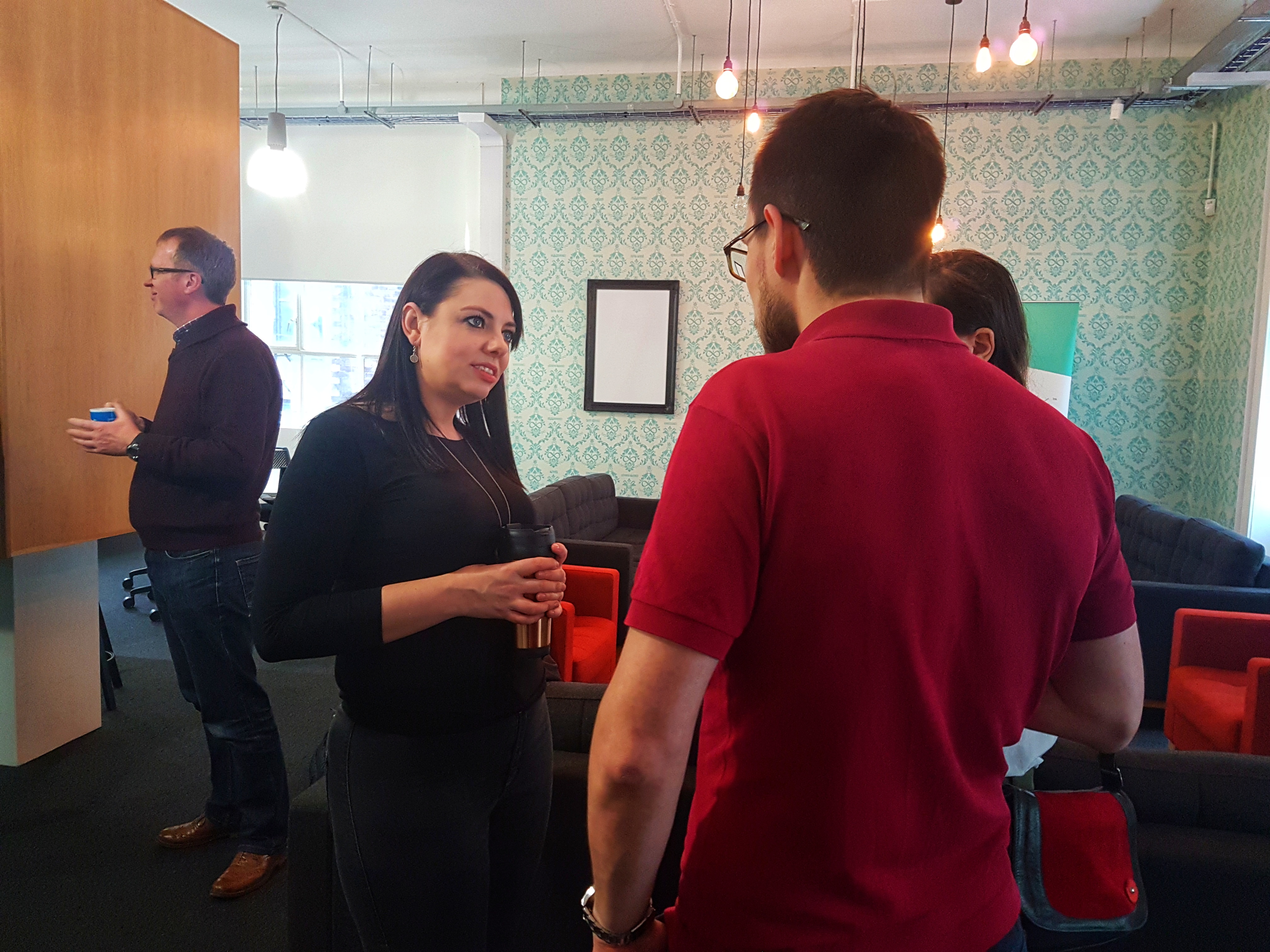
If one thing was learned from our #MilkBar event last week, it’s that STEM, should really be STEAM. With the ‘A’ representing the arts!
We are living in the ‘Age of Information’, a period of time that is characterised by the shift from industrial production to one based on information and computerisation (Wikipedia). Nearly all businesses are digital, or at least partly digital. So as time progresses how is this computerisation impacting Business and the roles/skills of the workers?
Bringing together some of the top minds in Scottish Digital Transformation, This is Milk held the first #MilkBar of 2018 at Tontine Glasgow on the 16th of March. An event created to educate & discuss the topic ‘Jobs of the Future’.
Inga discussed that fears surrounding technology are not a new thing. Do you know that the introduction of the television sparked fears of mass lethargy. What about Y2K (The Millennium Bug) when all things technological would cease to work, causing the fall of civilization as we know it.
In reality this did not happen, nor will any current or future technologies cause the level of destruction that we are led to believe. In actual fact, technology generally serves as a means to enhance our lives if used correctly. It saves us time. It provides us with information. Modern tech allows us to get what we need by the mere uttering of the word “Alexa”. There is no need to fear technology, we survived it before, we will survive it again.
Inga also spoke about the vitality of Art & Technology in today’s curriculum. A theme that was echoed throughout this #MilkBar by all speakers. We were shown examples of Music & Art created by Artificial Intelligence. Luckily it is not quite at the stage where it will totally replace the human mind. It does however act as a sober reminder that creativity is an essential skill that must be allowed to flourish in our education system if we are to stay ahead of the pace of technological advancements.
@IngaPaterson from @GSofA speaking at today
‘ data-url=”” unselectable=”on” contenteditable=”false” readonly=”true” draggable=”false” >
Steve looked at job roles in recruitment. Asking “Are we hiring in the wrong way & for the wrong things”. Do you recruit for job role? for skill? for personality? and what does this recruitment process look like?
Think about this. If the job role of tomorrow is unknown, then how do you recruit for it? Steve’s own anecdote was to think about the very first welder, how was that person recruited? It’s potentially by looking back that we may learn how to recruit for tomorrow.
Again the Arts was a major topic in Steve’s thoughts. Quoting Seth Godin, and promoting that you need to become a linchpin in your work, so that the shifts in technology won’t be able to catch up?
A focus in the soft skills are essential. Technical skills can be taught on the job, in fact they are abundant in the marketplace, however there is an increasing lack of expertise in the soft skills such as negotiation, people skills, empathy, leadership and collaboration.
It
‘ data-url=”” unselectable=”on” contenteditable=”false” readonly=”true” draggable=”false” >
The focus of conversation from Angela was that there must be a solution to the digital skills gap that has emerged. In true poetic fashion, Angela’s vision for the training solution is an equal dose of design thinking, creativity, soft skills and reduction of fear. The very points that her predecessors had discussed moments before.
A solution to the skills shortage is about working with industry to upskill existing employees in the skills that they are lacking. Doing so would allow our industry to direct change, keep up with future trends as well as future proofing jobs. Again this isn’t about teaching the technical skills, it’s about teaching the skills that facilitate digital projects, the jobs that the robots cannot take, where creativity and human on the ball thinking is crucial.
What we learned?
Perhaps now more than ever, we have learned that the future of business lies in the hands of those who are willing to advance their skills with that what technology cannot replace. To utilise technology to enhance our lives, not replace. Freeing up more time to add value to your customers, be more personable, be more human and future proof your job in a world that will autonomies everything that requires a lack of creative thought.
We need arts, design and creativity on top of STEM for businesses to thrive @thisismilkuk pic.twitter.com/W2Rwgocizm
— Kore Transformation (@kore_coaching) March 16, 2018
We would love if you joined our #MilkBar community, share your thoughts on this topic and hopefully make it along to an event in the near future. https://www.meetup.com/Scottish-Business-Transformation-The-Milk-Bar/
This is Milk